A proposed ban on greyhound racing in Wales puts London’s last racetrack on an uncertain path to regain relevance as interest in the sport dwindles.
The ban, alongside a recent deadly outbreak at an Oxford kennel, and London’s only other track closing in January have buffeted the Coral Romford stadium from all sides and could foreshadow an end to the once-loved sport.
Following work by the Cut the Chase coalition of anti-greyhound racing organisations, other groups like the Alliance Against Greyhound Racing (AAGR), and after a 35,000 strong petition, the Senedd have announced what will be the first ban of its kind in the UK, if it passes.
Retired doctor Moe Kaur started Greyhounds, Many Nations, One Voice, part of the AAGR, in 2016 after joining the world of greyhound rescue a few years prior and campaigns internationally to get the sport banned.
Kaur said: “When I first started campaigning, I thought it was a really simple issue, but the more you go the more you realise it’s a really big subject to cover.
“It was adopting a greyhound that changed my life.
“The most gorgeous looking eyes staring at me, she rested her head on me and that was it.
“We are a nation of dog lovers, and the public will not support the killing of dogs for gambling.”
Kaur and many others see the gambling industry as one of the main obstacles in keeping the industry afloat and that much of its life has moved online.
At its peak, there were over 200 tracks in the UK, but now only 19 licensed ones remain active.
The retired doctor highlighted the impact the sport has on these dogs and focuses her attention on injuries and deaths in racing greyhounds, as she says that is the fundamental, irresolvable problem that the industry cannot accept.
Indeed, the 2022 UK parliament petition specifically mentioned the aims of ending unnecessary death and suffering.
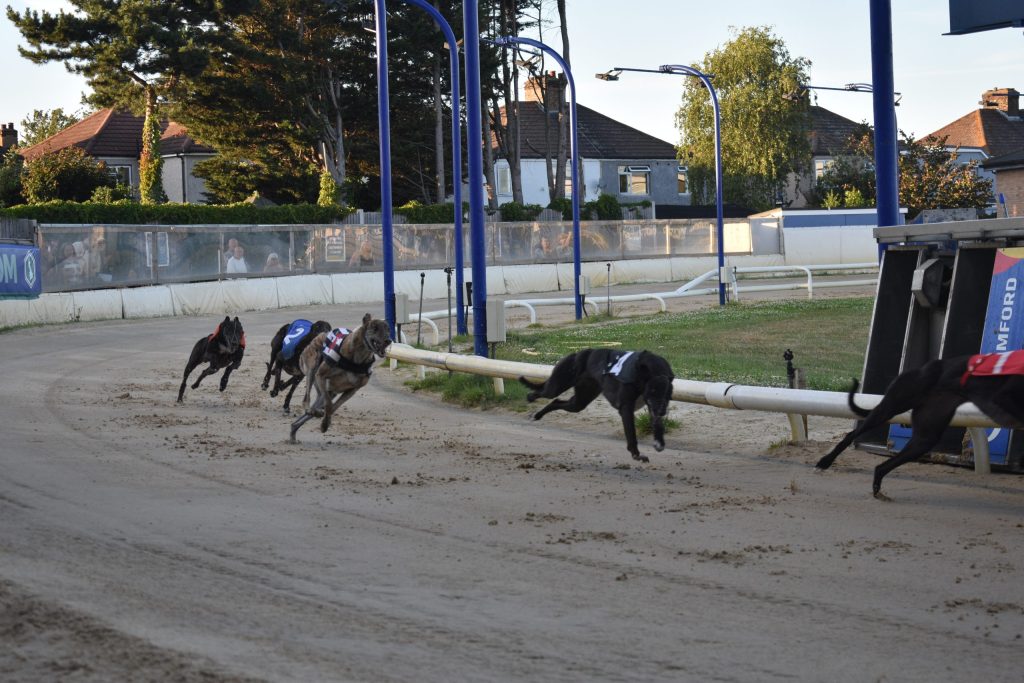
According to industry regulator the Greyhound Board of Great Britain (GBGB), more than 2,000 greyhounds died or were euthanised because of racing between 2018-2021.
The GBGB has clarified that this figure is total number of greyhounds within the racing population which died in the given time period, excluding those which died of terminal illness.
This figure includes greyhounds which died of sudden cardiac death, something which can unfortunately occur in any animal, those which were put to sleep on veterinary advice for reasons entirely unrelated to racing, and those which were behaviourally evaluated and deemed unsuitable for homing, something which affects all animals awaiting homing.
A spokesperson for GBGB added that there has been a “significant improvement in fatality rates since 2018”.
They continued: “The trackside fatality rate remained stable at 0.03% in 2024, which is half of what it was in 2018, and the overall number of trackside fatalities has also decreased by 51% since 2018.”
The petition drew over 100,000 signatures and was debated that March without anything more coming from it.
Kaur, however, says that campaigners never thought it would lead to an immediate ban, the point was to start the public conversation.
Viewing the struggle like that which got fox hunting outlawed and the ivory trade halted in this country, Kaur wants to see broad public support carry forward legislation to make sure it sticks.
She said: “The industry is in terminal decline.
“We don’t just want it to end, we want legislation to make sure it doesn’t come back.”
With support also coming from charities and groups that once worked with the greyhound industry, Dogs Trust, the RSPCA and Blue Cross to name a few, the calls for a ban are steadily growing and have held firm for years.
Some might be convinced by reports by the Scottish Animal Welfare Commission that suggest the industry’s view is that the dogs should adapt to the industry’s desires, rather than the industry adapt to the dog’s needs.
Dogs Trust Chief Executive Owen Sharp said: “Over the past six years, more than 2,700 dogs have lost their lives in the UK in the name of entertainment, with many more suffering serious or life-changing injuries.
“With Wales now committed to ending greyhound racing, it’s time England, Scotland, and Northern Ireland followed suit and put a stop to this inhumane form of entertainment once and for all.”
On one Friday evening at the Romford track, the crowd covers all ages, including those too young to be unsupervised.
Children swing on the barriers, while parents exchange racing tips, while others mingle and drink from pitchers, while more take selfies or sit at the bar clutching the timetable.
The races last a matter of seconds; the crowd erupts and is just as quickly lulled back to the low hum of chatter while tickets are ripped up or stashed.
Those asked say they trust the GBGB has the best interest of the dogs at heart and that they are constantly improving their welfare standards.
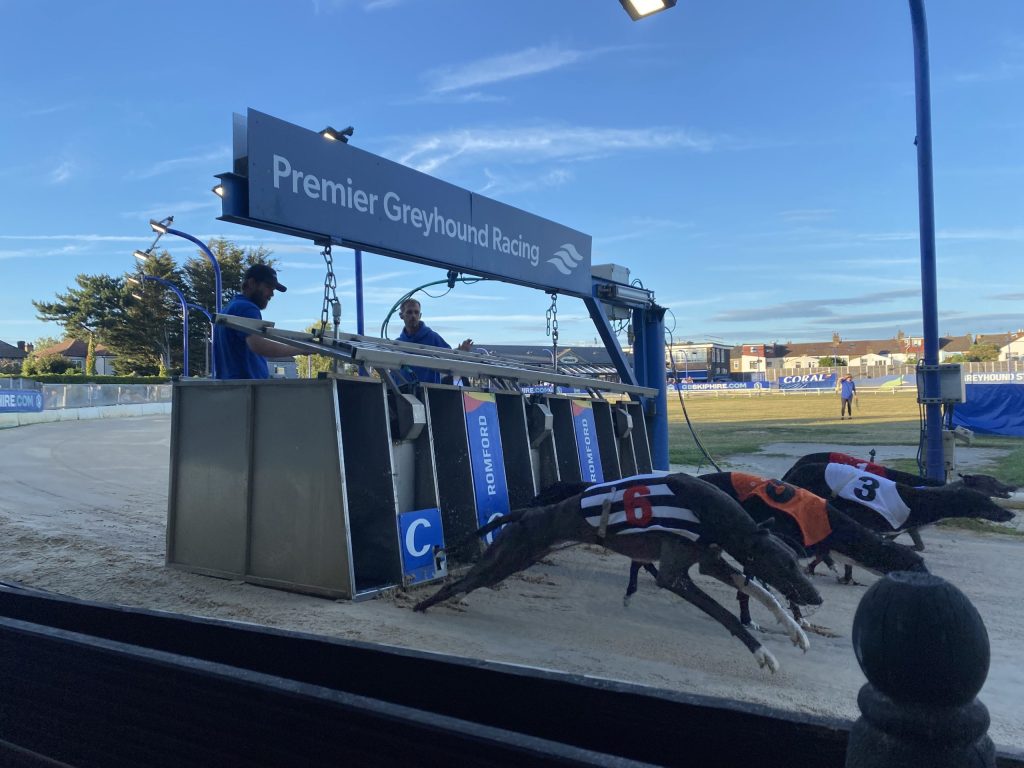
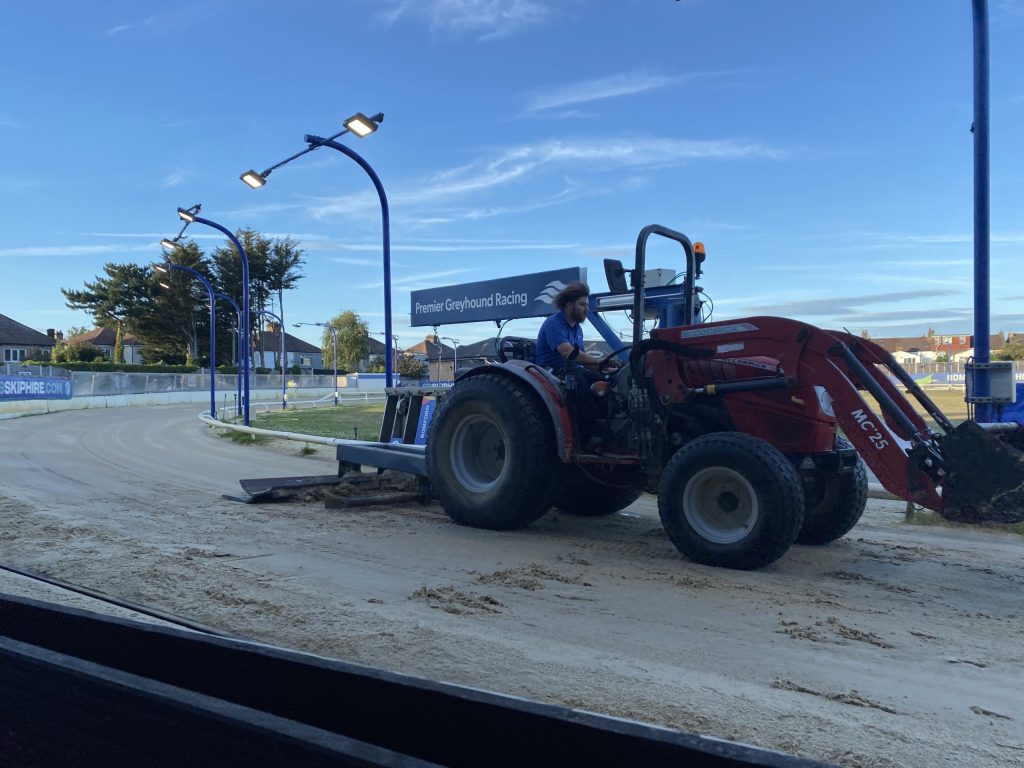
Some mention the contended notion that doping the greyhounds is a thing of the past.
Many already see the UK as a strange outlier, with four of the nine countries where greyhound racing is legally practised being the UK nations.
Interestingly, the United States of America, where it is also still legal, has only two active tracks remaining in the entire country, both in West Virginia.
Romford MP and former shadow minister Andrew Rosindell has long been a strong supporter of the sport and intends to help it however he can.
Rosindell said: “I have always believed that greyhound racing, when properly regulated and underpinned by strong welfare standards, could continue as a legitimate and valued part of British sporting and cultural life.
“The vast majority of people involved in greyhound racing care deeply about the welfare of the animals and are committed to improving standards.
“I support constructive engagement with the industry to ensure continued progress on welfare, rather than calls for outright bans which risk unintended consequences, including the loss of oversight altogether.”
Industry data from the GBGB shows that there were over 30,000 injuries between 2018-24 and 123 trackside deaths last year, the highest since 2021.
It equates to 1.17% of races incurring injuries, however this measurement accounts for injuries sustained at GBGB tracks and is not necessarily a full assessment of the long-term damage done to the dogs.
Kaur said: “The very act of racing is destroying their bodies.”
This is one of the main arguments for a complete ban that groups like the AAGR propose.
A GBGB spokesperson said: “On the injury data, we are pleased that 2024 saw the lowest injury rate on record at 1.07%. The use of a cumulative figure over seven years of data fails to show the tremendous improvements which have been made.
“GBGB’s latest Injury and Retirement Data can be found here.”
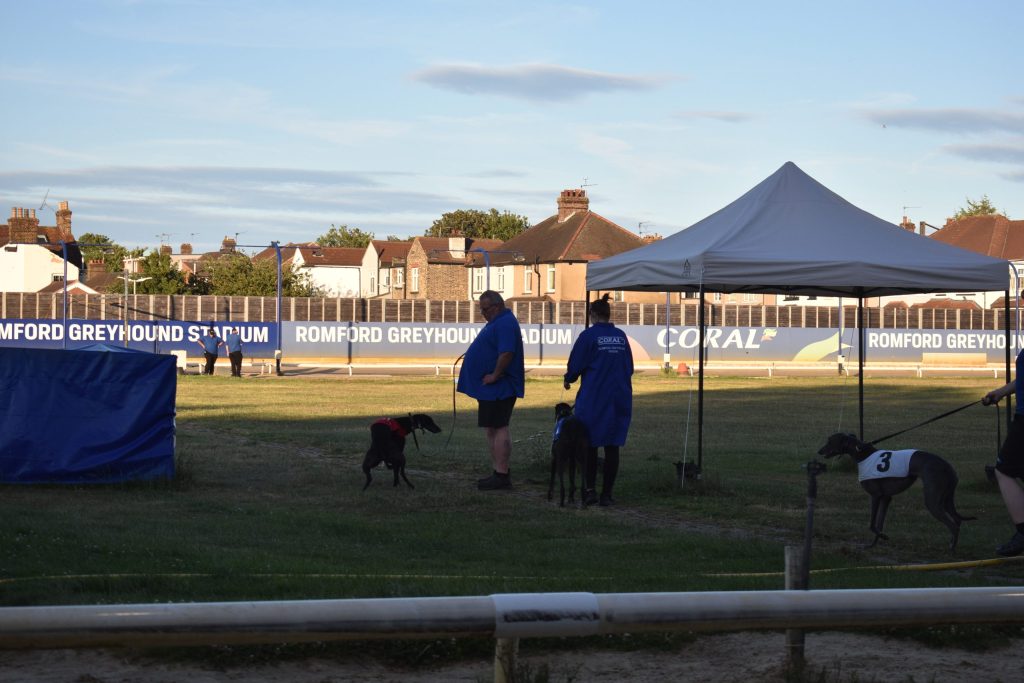
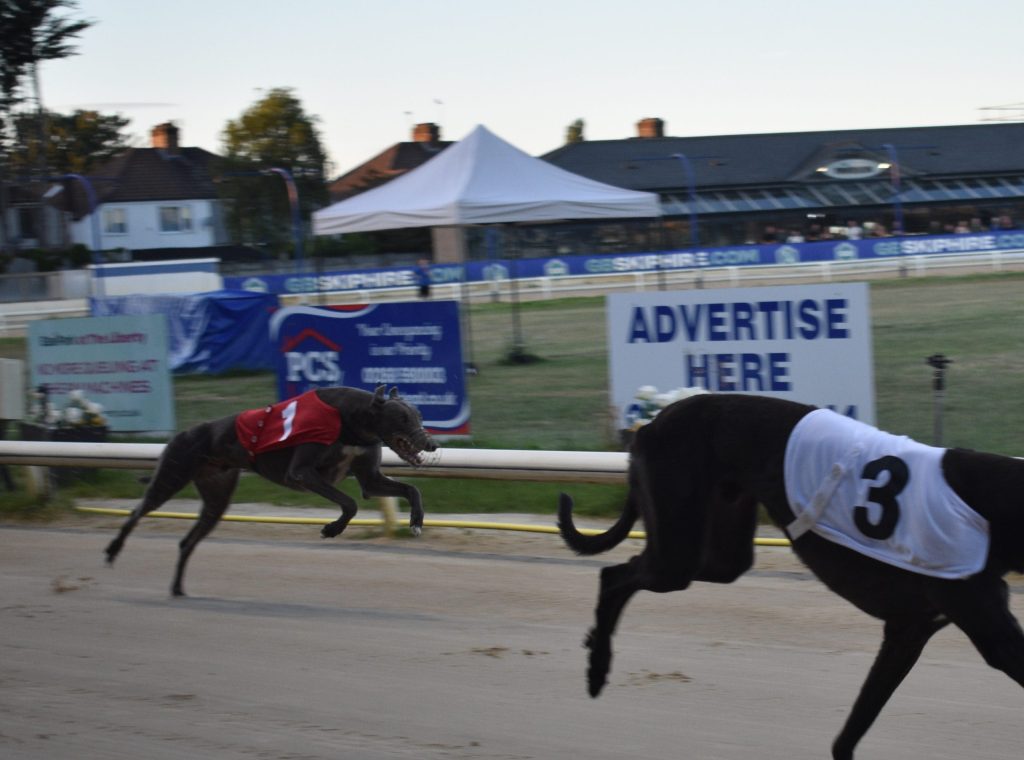
Kaur and others cite the 2018 Andrew Knight report that details the specific injuries and their causes in greyhound racing, citing even the repetitive strain that running at speed on an ovoid track does to the dogs’ bodies.
Even with GBGB inspections uncovering horrors like the trainer banned from keeping animals for life over her treatment of 38 dogs, Kaur does not fault the trainers and carers she has met.
Although unable to share their views on racing, Kaur said she tries to understand the genuine feelings of greyhound trainers towards their dogs as they make them race on oval tracks.
She said: “The cruelty’s been going on for so long, I think they’ve normalised it.”
One Romford attendee with a betting slip, Stan, said: “It’s a nice little earner if you can get anything right, but otherwise it’s just a bit of fun.
“I know people who’ve raised dogs for racing, I know how much they love them.”
Still, Kaur doesn’t feel that the industry can be trusted to carry on self-regulating while the sport remains legal, especially as, she says, they contribute so little to the dogs’ post-racing lives.
Kaur continued: “It was the RSPCA that saved the dogs from Rebecca Perkins and took her to court, not the industry.
“It’s never the industry that picks up the pieces, what they’ll do is pick them up and hide them.”
A GBGB spokesperson said: “Despite GBGB’s regulatory remit being limited to the period when greyhounds are racing, GBGB believes it has a duty to ensure every greyhound which can goes on to enjoy a long and happy retirement.
“GBGB has a range of important schemes in place to support greyhounds into retirement, such as:
- The Greyhound Retirement Scheme (GRS): Under the scheme, all owners of racing greyhounds must pay £210 towards their greyhounds’ retirement at the same time as registering them with GBGB. When the greyhound enters an approved homing centre upon their retirement, this £210 is matched by GBGB to create a £420 ‘bond’. When a greyhound is moved into an approved homing centre, the centre receives the full bond to help support the costs associated with homing the greyhound. So far, the GRS has paid out over £5.6 million to homing centres since its launch in 2020;
- The Injury Retirement Scheme: In the unfortunate circumstance that a greyhound sustains a career ending orthopaedic injury, GBGB will cover the cost of veterinary care to ensure that the greyhound can go on to enjoy their retirement. So far, the scheme has paid out almost £1.5 million, resulting in the number of greyhounds being put to sleep for economic reasons being reduced by 98% since 2018
“In addition to these schemes, the GBGB welfare team conducts regular checks in the year after a greyhound retires to ensure the greyhound is where it is supposed to be.
“Likewise, any retired racers awaiting homing places in their trainers’ kennels receive regular visits from GBGB stewards, including our team of Regional Regulatory Vets.”
A spokesperson for Dogs Trust said: “We want to work collaboratively with the industry and other stakeholders to ensure the welfare of dogs is not compromised while we work towards a phased end to greyhound racing.
“The animal welfare sector will not turns its back on the dogs affected by this industry.”
A GBGB spokesperson strongly disputed these claims as innacurate.
They continued: “All GBGB licence holders are subject to our over 200 Rules of Racing and where any infractions occur, these are addressed through our independent disciplinary processes.
“In the incredibly rare case that UK animal welfare laws have been breached by a licence holder, GBGB always cooperates fully with the relevant investigating bodies and with any legal proceedings which may be brought, including in the case cited in your article.”
Meanwhile, another group of young women at the stadium are dressed for a night out.
One woman said: “It’s pretty cheap and a nice place to come, especially in the summer.
“For what you’ve got around here, it’s pretty good, better than most of the pub gardens.”
For these groups, it seems, a day at the races is not about an affinity with the sport, or with betting at all, but essentially about affordable spaces for social interaction.
Coral Romford Stadium declined to comment.
All images supplied by the author
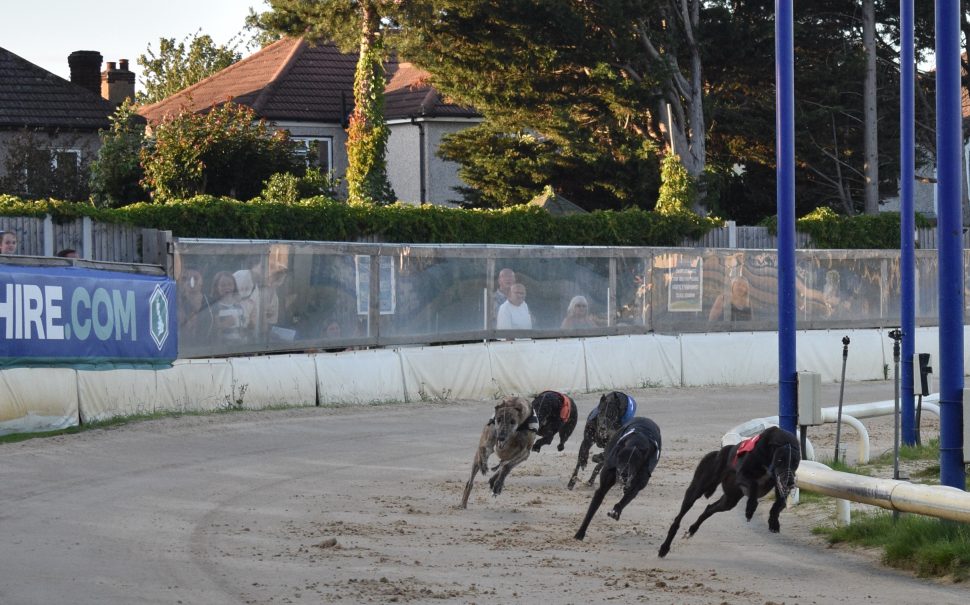
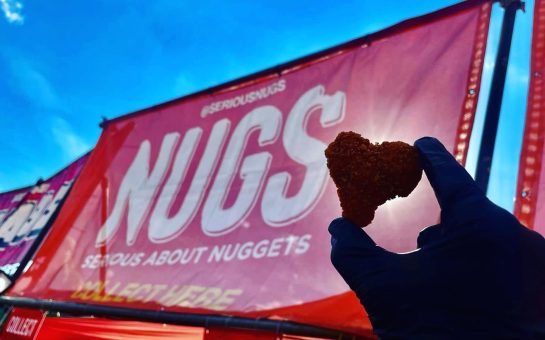
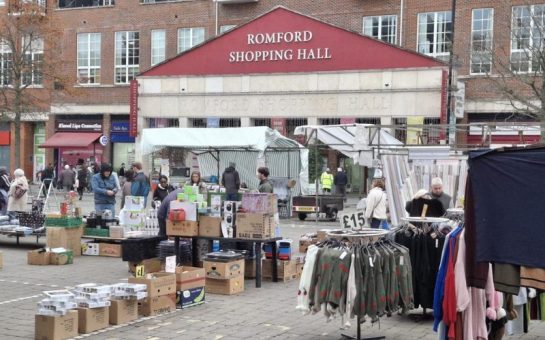

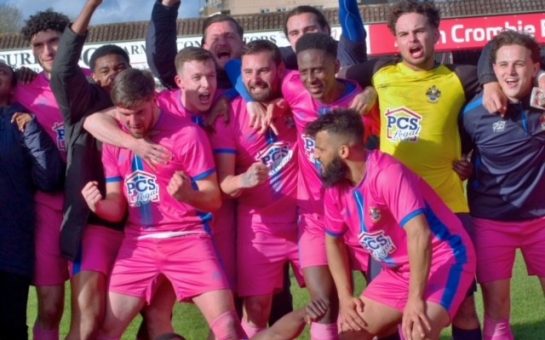
Join the discussion